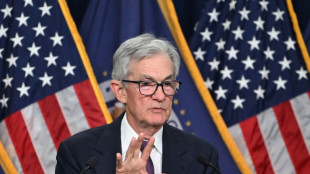

China property giant Evergrande suspends share trading again
Troubled Chinese property developer giant Evergrande and all its units suspended trading in Hong Kong Monday morning, according to a notice to the stock exchange.
China's property firms have struggled in the wake of Beijing's drive to curb excessive debt in the real estate sector, as well as rampant consumer speculation.
Among those embroiled in the crisis is Evergrande, one of the country's largest developers, which has been involved in restructuring negotiations after racking up $300 billion in liabilities.
On Monday the company announced that trading will be "halted" without giving a reason.
"Accordingly, all structured products relating to the company will also be halted from trading at the same time," said a notice to the Hong Kong Stock Exchange.
Shares of Evergrande Property Services Group and China Evergrande New Energy Vehicle Group were suspended.
The suspension -- the second this year -- comes ahead of an expected $2 billion repayment obligation on Wednesday, and another next month of $1.4 billion.
The embattled developer was labelled as being in default by international ratings firms in December after it failed to repay liabilities on time.
Earlier struggles to pay suppliers and contractors due to the debt crisis led to sustained protests from homebuyers and investors at the group's Shenzhen headquarters in September.
The company has repeatedly said it will finish its projects and deliver them to buyers in a desperate bid to salvage its debts.
But in January it was ordered by authorities to tear down 39 buildings on Hainan island because the structures were built illegally on an artificial archipelago in the tourist hub.
The firm has tried to sell assets, with chairman Hui Ka Yan paying off some of the debts using his own personal wealth.
Evergrande's woes have had knock-on effects throughout China's property sector with some smaller firms also defaulting on loans and others struggling to find enough cash.
The International Monetary Fund warned in late January that the property funding crisis could have spillover effects on the broader economy and global markets.
P.Claes--JdB



